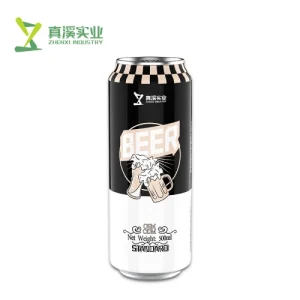Craft beer often commands a higher price point compared to mass-produced beers, and there are several compelling reasons behind this pricing. From the ingredients used to the production methods and business models, the craft brewing industry is inherently different from large-scale commercial breweries. Understanding these differences can help consumers appreciate the value of what they're drinking when they choose a CRAFT BEER.
Premium Ingredients
One of the primary factors driving the cost of craft beer is the quality and variety of ingredients used. Craft brewers frequently utilize specialty malts, exotic hops, and sometimes non-traditional additives like fruits, spices, or even coffee and chocolate, which are more expensive than the basic ingredients used in larger breweries. For example, a craft brewer might use a specific type of hop that costs $10-$15 per pound, compared to more common hop varieties that might cost less than $5 per pound.
Smaller Scale Operations
Craft breweries typically operate on a much smaller scale than major beer manufacturers. This smaller scale means they don't benefit from economies of scale in the same way that large breweries do. Purchasing ingredients in smaller quantities, using less automated equipment, and employing more hands-on techniques often result in higher costs per unit of beer produced. Despite these higher costs, the small scale allows for greater creativity and experimentation, which is a huge draw for craft beer enthusiasts.
Labor-Intensive Processes
The production methods used in craft brewing can be significantly more labor-intensive. Many craft breweries pride themselves on handcrafting their beers and maintaining a high level of human oversight throughout the brewing process. This approach ensures quality but also increases labor costs. Unlike large breweries, which can automate nearly every step of the process, craft breweries often do tasks by hand, from measuring ingredients to bottling the final product.
Limited Production Runs
Craft brewers often produce beer in limited batches. These limited runs mean that each batch is unique but also less efficient to produce. The costs associated with setting up and running small batches are relatively high, but they allow brewers to offer a wide variety of products and special limited edition runs that attract a loyal customer base.
Distribution and Marketing
Craft breweries typically spend more on a per-unit basis for packaging, distribution, and marketing. Many craft beers are bottled in unique, visually appealing bottles or cans, which can cost more than standard packaging options. Additionally, craft breweries often distribute their products regionally rather than nationally or internationally, which can increase transportation costs per unit. Marketing strategies focusing on the local community and direct customer engagement also add to the overall expenses.
Regulatory Costs
Compliance with alcohol production regulations can be particularly burdensome for smaller breweries. The per-unit cost of regulatory compliance is generally higher for craft breweries than for large producers because these costs are spread out over a smaller volume of product.
Craft beer's higher price is a reflection of its artisanal quality, innovative flavors, and the passion of its producers. Consumers who purchase craft beer are not just buying a drink; they are investing in small businesses that prioritize quality and community involvement over mass production and profit.
